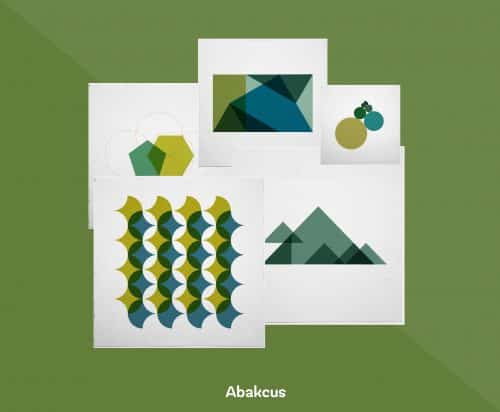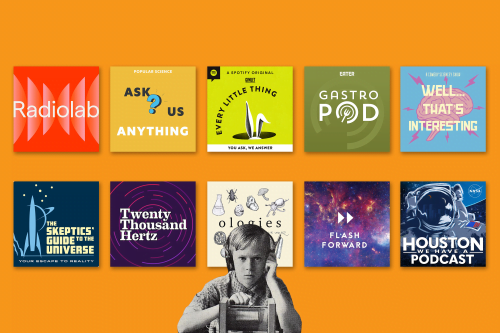Calculus is integral to many college majors and a beneficial tool for students to master. It teaches students problem-solving strategies and builds a strong knowledge base for further study. Calculus also involves using sophisticated techniques to find solutions to complex problems, which opens up numerous opportunities for creative thinking.
The ability to think critically and solve equations can be an asset in many different classes and fields and strengthen one’s foundation for understanding more advanced mathematical concepts. Learning calculus can provide long-term advantages, from building confidence in mathematics to improving professional skills in the workplace.
Calculus can be an intimidating course for some students, but approaching it with an organized plan and plenty of dedication can help ensure success. A good strategy is to create a study plan and stick to it – setting a specific time each day to review material and practice any problem sets received during class. It’s also important to ask questions to clarify anything confusing, as Calculus builds on principles previously studied, and a thorough understanding is essential. Lastly, attending classes regularly and taking part in discussion sessions outside of class can keep topics fresh and make studying easier in the long run. Calculus isn’t easy, but implementing these strategies can improve grades.
Get some popular math books to read in your spare time!
Calculus is a challenging but rewarding part of mathematics, and studying it is an investment that can pay off in many ways. Fortunately, there is a way to learn calculus without the full commitment of enrolling in a course or attending lectures. Reading popular math books on calculus is an excellent strategy to immerse yourself in the subject and gain knowledge effectively. Not only can these books help demystify this branch of mathematics, but they can also demonstrate its daily life applications and make the subject matter more understandable. If you’re looking to study Calculus, picking up some of these popular math books is the thing for you!
Watch some good lectures about Calculus on Youtube.
Calculus is an incredible example of human ingenuity, and its implications continue to be felt around the world. To explore its origins and impact, acclaimed mathematician Steven Strogatz will provide a lecture on Calculus and how it revolutionized science, philosophy, medicine, technology, and more. Calculus has long been crucial to advancements in so many fields, and this lecture will explain why. From discovering solutions to equations to bringing us closer to understanding the complexity of space, Calculus has changed how we think about solving problems In exciting ways – something Steven Strogatz’s lecture will surely explore in greater detail.

I have also made a playlist from 3Blue1Brown’s calculus lectures. You can enjoy them here.
Develop an effective and time-efficient homework/study strategy
Creating an effective and time-efficient homework/study strategy for your courses is essential to success in school. Calculus can especially be a challenging class, but it is no longer necessary to stress over studying when there are strategies that will make working on your assignments more efficient and manageable.
Homework should not take away from relaxation, socializing, and other activities. A good plan involves breaking down the tasks into small parts and dedicating a certain amount of time each day to completing them in manageable chunks. For instance, focus on Calculus first and split it into sections based on the chapters.
Review notes every day or go through them step by step. For example, dedicate Monday as a Calculus review day while Tuesday would be lecture time, then midweek could consist of test reviews or sample problems, and so on. Developing a systematic approach like this allows you to stay ahead of the material while still having ample leisure time. This will help you become a confident and successful student who enjoys your work-life balance.
Spend at least two to four hours on each homework assignment
Calculus is a difficult subject to master and having a good study strategy to tackle homework problems is essential. Spending two to four hours on each assignment will pay off in the long run, as it gives you enough time and focus to work through problems without feeling rushed or overwhelmed. Doing this also helps you organize your questions and ideas, so when it’s time for exams or quizzes you won’t be left scrambling at the last minute. If you take the extra time to thoroughly review and assess each Calculus problem, then you’ll be more likely able to articulate your thoughts clearly to your classmates and teachers.
Memorize definitions, formulas, and theorems.

Calculus is a subject that is built on the foundation of prior knowledge. Mastering all the definitions, formulas, and theorems discussed in class is essential to succeed in Calculus. A good study strategy for Calculus is to memorize all required concepts immediately before attempting any homework assignments. This way, you can avoid constantly looking back at old notes when trying to complete your Calculus problems – which will ultimately slow down your work speed and stop you from gaining a deeper understanding of this subject.
Long-term success with Calculus requires committing these key concepts to memory as early as possible; postponing it until exam time will result in frustration and confusion further down the line!
Spend time working on calculus every day.
Calculus can seem daunting because of its complexity, but if you invest even a few minutes each day studying it, you’ll see significant improvement in no time. Calculus is an ever-shifting field of mathematics that requires regular practice and dedication to master properly – taking the time to learn some calculus daily is the perfect strategy for becoming familiar with concepts, definitions, and theorems. Doing so will make Calculus much simpler over time, allowing you to enjoy learning this difficult topic instead of simply struggling through it.
Have a good relationship with your Calculus classmates.

Calculus can seem like an impossible class to get through, especially with all the homework and exams. An efficient and effective study strategy is key to succeeding in your Calculus course; with that being said, reaching out to your classmates is one of the best ways to get ahead in Calculus.
Finding at least one or two other students from your Calculus class with whom you can regularly do homework and prepare for exams will ultimately reduce useless study time and improve your understanding of the material. The best thing to do before seeking help from other students is to make a good effort to solve the problem on your own so that they can steer you in a helpful direction.
If you’re ever stumped, getting some insight from peers might be the push you need — even if you don’t find an answer, it could still be a valuable learning experience.
Calculus exams can be intimidating, but with a strategy of preparing and outlining five class days ahead of the exam, you can boost the confidence and assurance needed for success. Make lists of equations, definitions, and theorems that you need to know for the exam to improve your understanding in areas where you are least prepared.
Prepare your Calculus exams in advance.
Putting aside the time to study allows for any last-minute changes, such as illness or family visits, that could otherwise prevent effective studying. Additionally, pulling all-nighters or cramming just before an exam is not recommended; doing this reduces your chances of academic success. It makes it more likely that you will fail Calculus. Preparing in advance for Calculus exams is key!
Practice exams at the end of each chapter, old hour exams, or old final exams.
Calculus exams can be intimidating, but with a well-thought-out study strategy and practice, they don’t have to be. A great way to prepare for Calculus exams is by working on new problems from sources such as unassigned textbook problems, review exercises, practice exams at the end of each chapter, old hour exams, or old final exams.
Although it may seem comforting to stick to familiar topics you’ve already practiced, this could give you a false sense of confidence when it comes time for the exam. To hone those Calculus skills and get exam-ready, seek out unfamiliar problems that are randomly mixed so that you can categorize and solve them in a way that closely simulates the actual testing environment.
Utilize all the resource options that come with the course.
Calculus can be challenging for any student, and a smart study strategy incorporates as many resources of assistance and information as possible. This can include using class course notes, accessing homework solutions available online or from peers, seeking out office hours with your professor or teaching assistants, or attending class problem sessions.
Using a wide range of these tools will help you develop an even more comprehensive understanding of the course material. Calculus doesn’t have to be intimidating – you can build a strong base in this subject by utilizing all the resource options that come with the course.
Here are some good Calculus textbooks for you!
Calculus exam season is the perfect time to test your knowledge!
Calculus exam season is the perfect time to test how well you’ve prepared in class. Expect your exams to be challenging, but don’t let that intimidate you! With proper study and strategy, Calculus exams won’t be too difficult. And even if Calculus doesn’t pose a challenge, it’ll still allow you to show off your knowledge and get a very high score. Wishing you luck on your Calculus exams!














